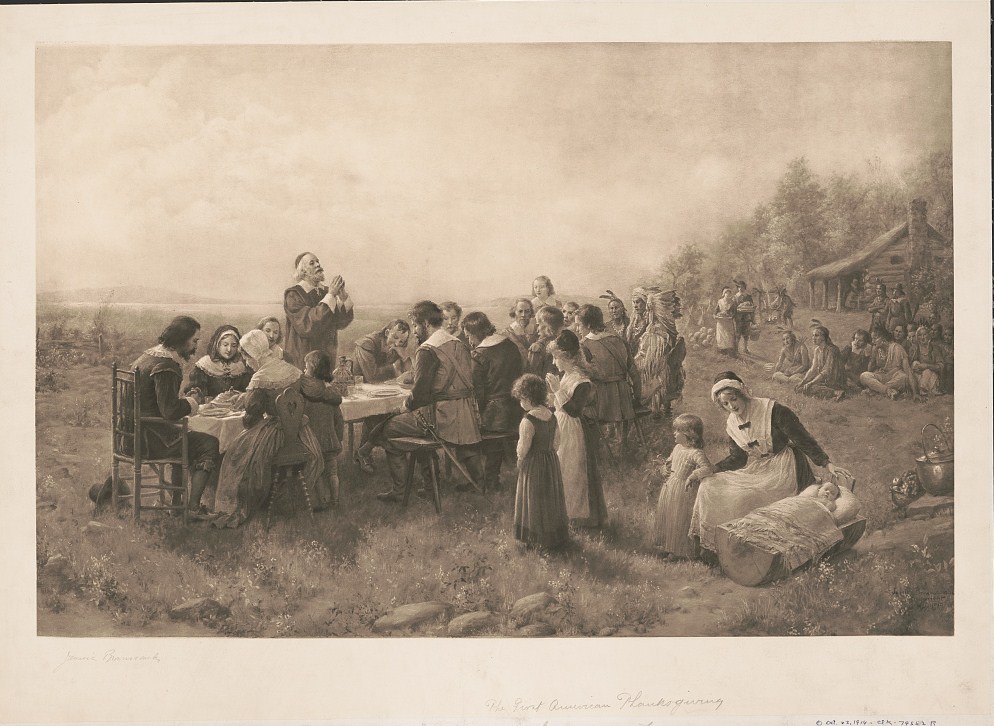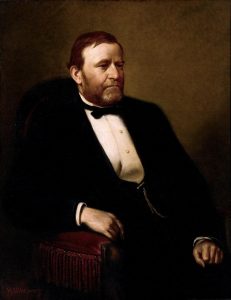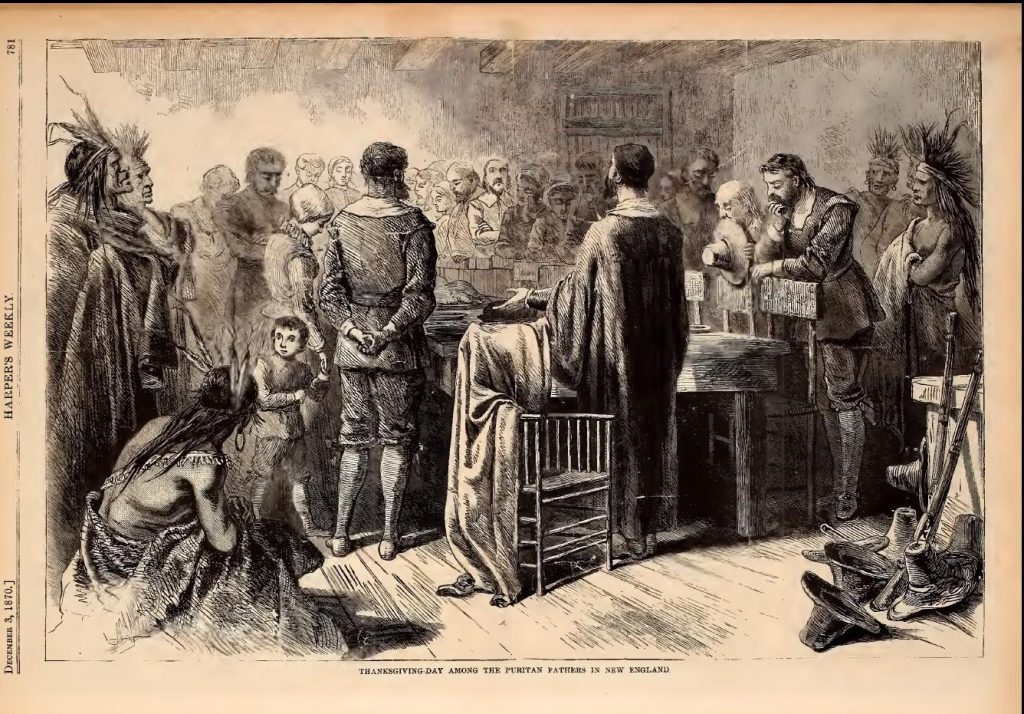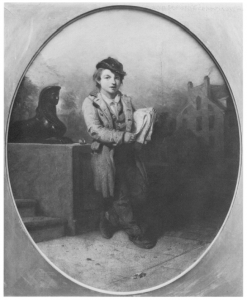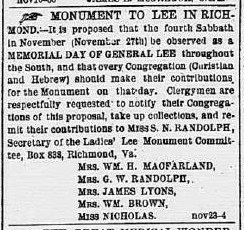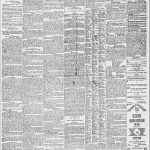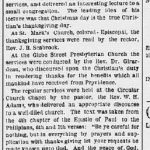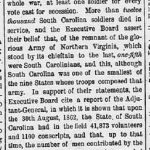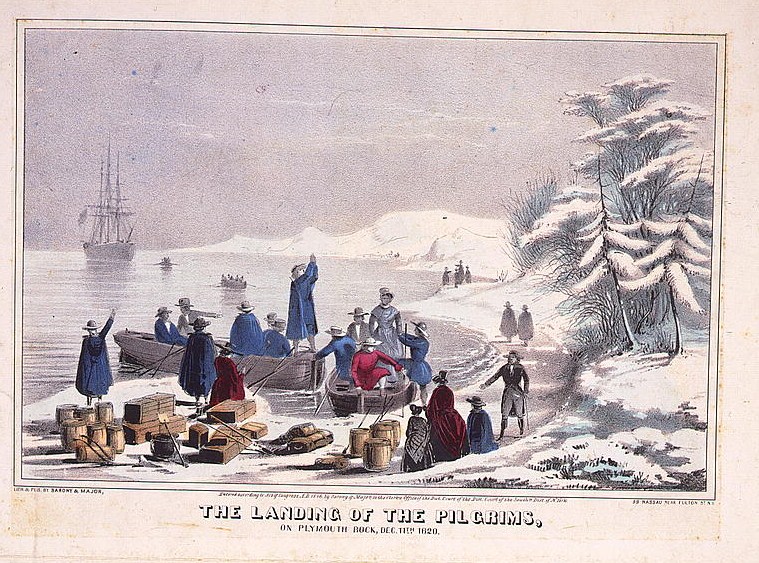Apparently 150 years ago the United States was free from pestilence and civil strife:
BY THE PRESIDENT OF THE UNITED STATES OF AMERICA.
A PROCLAMATION.
Whereas it behooves a people sensible of their dependence on the Almighty publicly and collectively to acknowledge their gratitude for his favors and mercies and humbly to beseech for their continuance; and
Whereas the people of the United States during the year now about to end have special cause to be thankful for general prosperity, abundant harvests, exemption from pestilence, foreign war, and civil strife:
Now, therefore, be it known that I, Ulysses S. Grant, President of the United States, concurring in any similar recommendations from chief magistrates of States, do hereby recommend to all citizens to meet in their respective places of worship on Thursday, the 24th day of November next, there to give thanks for the bounty of God during the year about to close and to supplicate for its continuance hereafter.
In witness whereof I have hereunto set my hand and caused the seal of the United States to be affixed.
[SEAL.]
Done at the city of Washington, this 21st day of October, A.D. 1870, and of the Independence of the United States the ninety-fifth.
U.S. GRANT.
By the President:
HAMILTON FISH,
Secretary of State.
From the November 25, 1870 issue of The New-York Times:
Of the many good customs handed down to us by our pious Puritan forefathers, there is, perhaps, none that has met with such general acceptance as that of the annual Thanksgiving which they first originated. Indeed, now its observance may be fairly said to be universal, and not all the differences of creed, race, and social customs that on other points so widely divide our cosmopolitan people, seem to offer the slightest bar to their hearty co-operation in and enjoyment of this pious festival. Here they intuitively perceive that they can all bow before a common altar and offer to their common Father praise and thanksgiving for the abundance of the good things with which during the year He has blessed them. The day was never better or more generally observed here, and though the weather was rather chilly and uncomfortable, and in the morning threatening clouds flitted across the sky, out-door pleasure-seekers were in no way deterred from enjoying themselves, and all our leading thoroughfares were crowded with gay promenaders. In the down-town portion of the City business was entirely suspended, and, except cigar stores and places where refreshments were sold, very few business houses of any kind were open. Everywhere a Sabbath-like stillness, so far as business traffic was concerned, prevailed, which was not even broken by the noisy newsboys. There being no evening papers issued, their occupation was gone, and they were allowed to devote themselves to turkey and such other good things as kind friends provided. Along the docks the ships lay lazily at their moorings, while very rarely one of their crews was to be seen about. Most of the vessels had their best flags flying, and presented a gay appearance. Target excursions were to be seen during the day in every direction, many of them composed of Juveniles rigged out in all sorts[?] of uniforms except a uniform suit. But in this motley arrangement of their military outfit, they were entirely eclipsed by processions of “fantasticals,” whose ludicrous costumes were a source of general merriment.
Tho most pleasant feature of the celebration, however, was the lavish public and private charity that made so many of the poor and suffering, for a brief time, at least, forget their troubles, and partake of the good things set before them. At all the public hospitals, asylums and prisons, the inmates were made to feel the humanizing influences that the day called forth, and to many of them it will no doubt be a green spot in their future recollections. In short, it is safe to say that there were few within the limits of the City, save those suffering from severe illness, that did not yesterday in some way share in the general enjoyment of the day.
In the thousands of our happy and wealthy homes it was, however, that the real spirit of the occasion was most keenly realized, and the wisdom of its observance most apparent. Here around the social home-board, family reunions were a feature; old friends renewed acquaintance; interesting reminiscences of other days were called up and discussed, and even though a vacant seat, at the table indicated that a member of the household had been called away, and threw a shade[?] of sorrow over the gathering, fervent thanks were offered up that so many others were spared to participate.
The inmates of the public institutions were provided for with a liberality that has never been exceeded in former years. … [1]
I checked a couple papers below Mason-Dixon for November 25th. There was little news about the holiday. According to a telegram from Columbia published in The Charleston Daily News, “Thanksgiving day has been generally observed in this city.” (I saw no mention of it in Columbia’s The Daily Phoenix for the 25th) The Charleston paper summarized Thanksgiving church services in the city on page 3. For example:
At Grace Church the regular services were conducted by the pastor, the Rev. C.C. Pinckney, and, in addition, a collection taken up for the Lee Monument. The attendance was almost as large as usual on Sunday, and the amount collected very satisfactory and encouraging. The text of the sermon was taken from the 107th Psalm and 8th verse: “Oh that men would praise the Lord for His goodness, and for His wonderful works to the children of men!” In the discourse the benefits for which should return thanks were pointedly set forth, and a touching tribute paid to the virtues of General R.E. Lee.

